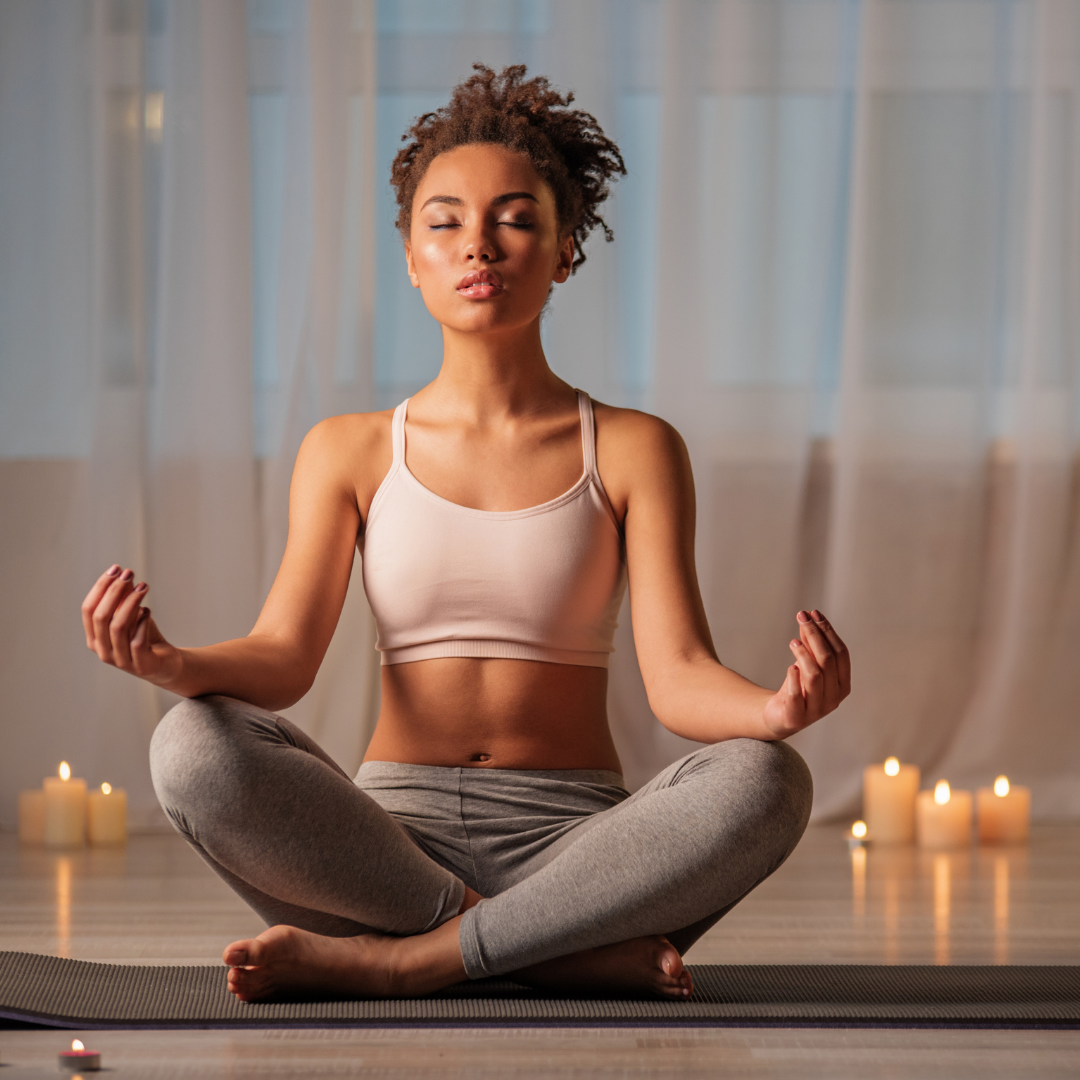Unlocking the Power of Meditation for Fitness Recovery: Cultivating Inner Peace and Rejuvenation
In the fast-paced world of fitness, it's essential to find effective strategies for recovery and rejuvenation. While physical techniques such as foam rolling, massage therapy, and compression therapy are widely known, one often overlooked tool for fitness recovery is meditation. Meditation goes beyond just relaxation; it has the power to cultivate inner peace, reduce stress, and promote overall well-being. Incorporating meditation into your fitness routine can significantly enhance your recovery process and optimize your athletic performance.
The Benefits of Meditation for Fitness Recovery
Meditation offers a wide range of benefits for fitness enthusiasts, athletes, and runners alike. Here are some key advantages of incorporating meditation into your recovery routine:
- Stress Reduction: Engaging in regular meditation helps reduce stress, which is vital for effective recovery. The practice allows you to create a calm and focused state of mind, enabling your body to relax and heal more efficiently.
- Mental Clarity: Meditation enhances mental clarity and concentration, making it easier to set and achieve fitness goals. This focused mindset can also improve your ability to listen to your body's needs and prevent overtraining or pushing through injuries.
- Improved Sleep: Quality sleep is crucial for recovery. Meditation helps calm the mind, promoting a sense of deep relaxation that can lead to more restful sleep. Better sleep allows your body to repair and recharge, enhancing your overall recovery process.
- Injury Prevention: By reducing stress and improving body awareness, meditation can help prevent injuries. Being more in tune with your body allows you to identify and address potential issues before they escalate into full-blown injuries.
- Enhanced Endurance: Meditation can increase resilience and mental toughness, allowing you to push through challenging workouts and races. By training your mind to stay present and focused, you can maintain a positive attitude even during demanding physical activities.
Incorporating Meditation into Your Fitness Routine
Integrating meditation into your fitness recovery routine doesn't have to be complicated. Here are some practical steps to get started:
- Schedule Regular Meditation Sessions: Set aside dedicated time each day for meditation. Start with just a few minutes and gradually increase the duration as you become more comfortable.
- Find a Quiet Space: Choose a quiet and peaceful space where you can practice meditation without distractions. It can be a corner of your home, a park, or any place that promotes tranquility.
- Get Comfortable: Find a comfortable position, whether sitting or lying down. You can use cushions, mats, or even a meditation bench to support your posture and ensure relaxation.
- Focus on Your Breath: Concentrate on your breath as you inhale and exhale deeply. This helps anchor your attention and allows you to become more present in the moment.
- Use Guided Meditation: If you are new to meditation, consider using guided meditation apps or videos. These resources provide instructions and soothing voices to help you relax and focus.
- Combine Meditation with Other Recovery Techniques: Meditation can be combined with other recovery practices such as stretching, foam rolling, or ice baths for a comprehensive and holistic approach to fitness recovery.
Meditation can transform your fitness recovery journey by promoting inner peace, reducing stress, and optimizing your overall well-being. Incorporate this powerful practice into your routine and experience the profound benefits it offers. By embracing meditation, you can enhance your physical recovery, prevent injuries, and achieve peak performance in your fitness endeavors.
Enhancing Your Meditation Practice for Fitness Recovery
Now that you understand the benefits of incorporating meditation into your fitness recovery routine, let's explore some ways to enhance your practice:
1. Set Intentions
Before each meditation session, set clear intentions for your practice. Whether it's focusing on releasing tension, visualizing optimal performance, or simply calming the mind, intentions help guide your meditation and give it purpose.
2. Practice Mindful Movement
Consider integrating mindful movement practices with your meditation, such as yoga or tai chi. These exercises can further enhance body awareness, flexibility, and relaxation, providing an extra layer of physical and mental recovery.
3. Experiment with Different Techniques
There are various meditation techniques to explore, including focused attention, loving-kindness meditation, and body scan meditation. Experiment with different methods to find the ones that resonate with you and align with your specific recovery needs.
4. Find Community Support
Joining a meditation group or finding a meditation buddy can greatly enhance your practice. Surrounding yourself with like-minded individuals provides support, accountability, and the opportunity to learn from others' experiences.
5. Create a Personalized Meditation Space
Designate a specific area in your home or outdoors as your meditation space. Personalize it with calming elements such as candles, cushions, or plants to create an environment that facilitates relaxation and peace of mind.
6. Use Technology as a Tool
Make use of technology to enrich your meditation practice. Meditation apps, online courses, and guided meditation recordings can offer guidance, structure, and inspiration, especially when you're starting out.
7. Practice Gratitude
Incorporating gratitude into your meditation practice can foster a positive mindset and deepen your sense of appreciation for your body's abilities and the progress you're making in your fitness journey. Keep a gratitude journal or simply reflect on moments of gratitude during your meditation sessions.
8. Utilize Breathing Exercises
Deep breathing exercises, such as diaphragmatic breathing or alternate nostril breathing, can help calm the nervous system, reduce stress, and promote relaxation. Integrate these techniques into your meditation practice for enhanced physical and mental recovery.
9. Maintain Consistency
Consistency is key when it comes to meditation. Aim to practice regularly, even if it's just for a few minutes each day. Set a specific time for your meditation sessions, making them a non-negotiable part of your fitness recovery routine.
10. Combine Meditation with Other Recovery Techniques
Combine meditation with other tried-and-true recovery techniques, such as proper hydration, nutrition, stretching, and using recovery tools like foam rollers or compression therapy devices. This holistic approach ensures a well-rounded and comprehensive recovery strategy.
Unlocking the power of meditation for fitness recovery involves more than just the physical aspects of healing. By cultivating inner peace and rejuvenation through meditation, you can tap into a deeper sense of well-being and optimize your overall athletic performance. Embrace the practice, explore different techniques, and commit to making meditation a regular part of your fitness recovery journey. Discover the transformational benefits it offers and unlock your full potential.
Exploring Advanced Meditation Techniques for Fitness Recovery
Now that you have established a foundation in meditation for fitness recovery, it's time to explore more advanced techniques that can further enhance your practice and promote inner peace and rejuvenation.
1. Visualization Meditation
Visualization meditation involves creating vivid mental images that align with your fitness goals and recovery needs. During your meditation session, visualize yourself achieving optimal performance, overcoming challenges, and recovering swiftly from any injuries or setbacks. Engaging your senses to imagine the sights, sounds, and feelings can strengthen the mind-body connection and enhance your belief in your capabilities.
2. Loving-Kindness Meditation
Loving-kindness meditation, also known as metta meditation, involves directing well-wishes and compassion towards yourself and others. By cultivating feelings of love, kindness, and compassion, this type of meditation promotes healing, forgiveness, and resilience. Start by sending loving-kindness to yourself, then expand it to loved ones, acquaintances, and even those you may have difficulty with. This practice helps cultivate a positive mindset, strengthen relationships, and foster inner peace.
3. Body Scan Meditation
Body scan meditation involves directing your attention to different parts of your body, systematically checking in with each area and releasing any tension or discomfort. This practice promotes body awareness, relaxation, and assists in identifying subtle areas of discomfort or imbalance. Begin at the top of your head and gradually move down to your toes, focusing on each body part and consciously relaxing any tension you encounter.
4. Transcendental Meditation
Transcendental Meditation (TM) is a technique that uses a mantra or a sound to help quiet the mind and promote deep relaxation. TM involves sitting comfortably with your eyes closed and repeating a specific mantra silently. The mantra acts as a focal point, allowing your mind to settle into a state of heightened awareness and tranquility. This type of meditation has been shown to reduce stress, improve focus, and enhance overall well-being.
5. Walking Meditation
If sitting still for meditation poses challenges, walking meditation can be a valuable alternative. Engage in slow, mindful walking, paying attention to each step, the sensation of your feet on the ground, and your breath. This practice is particularly beneficial for grounding, bringing awareness to the present moment, and connecting with the physical sensations of movement.
6. Sound Meditation
In sound meditation, the practitioner focuses on sounds to anchor the mind and deepen relaxation. It can involve listening to calming music, nature sounds, or even specific meditation sounds like singing bowls or chanting. The auditory stimulation assists in shifting the focus away from thoughts and into a state of deep relaxation and heightened awareness.
7. Mantra Meditation
Mantra meditation involves repeating a word, phrase, or sound as a way to focus the mind and create a sense of calm. Choose a mantra that resonates with you and feels soothing. As you repeat the mantra during your meditation, allow its vibrations to wash over you, bringing a sense of tranquility and peace.
8. Open Awareness Meditation
In open awareness meditation, instead of focusing on a specific object or technique, you cultivate an open and receptive awareness of your thoughts, emotions, and sensations as they arise in the present moment. This practice encourages non-judgmental observation and acceptance of whatever arises in your experience, fostering a sense of spaciousness and inner peace.
9. Guided Imagery Meditation
Guided imagery meditation involves listening to a recording or a guide who directs your imagination towards specific visualizations. These visualizations can range from imagining yourself in a peaceful natural setting to envisioning the cells of your body healing and rejuvenating. Guided imagery meditation provides a powerful tool for relaxation, stress reduction, and mind-body integration.
10. Silent Retreat or Meditation Retreat
Taking part in a silent retreat or a dedicated meditation retreat offers an immersive experience where you can deepen your meditation practice. These retreats often provide structured guidance, longer periods of meditation, and a supportive environment. They allow you to disconnect from external distractions and fully immerse yourself in your meditation journey, gaining new insights and experiences.
As you explore and incorporate advanced meditation techniques into your fitness recovery routine, remember that consistency and patience are key. Each technique may resonate differently with individuals, so it's essential to find the ones that work best for you and align with your unique needs. By continuing to cultivate inner peace and rejuvenation through advanced meditation techniques, you can unlock new levels of physical and mental well-being, leading to optimal fitness recovery and performance

